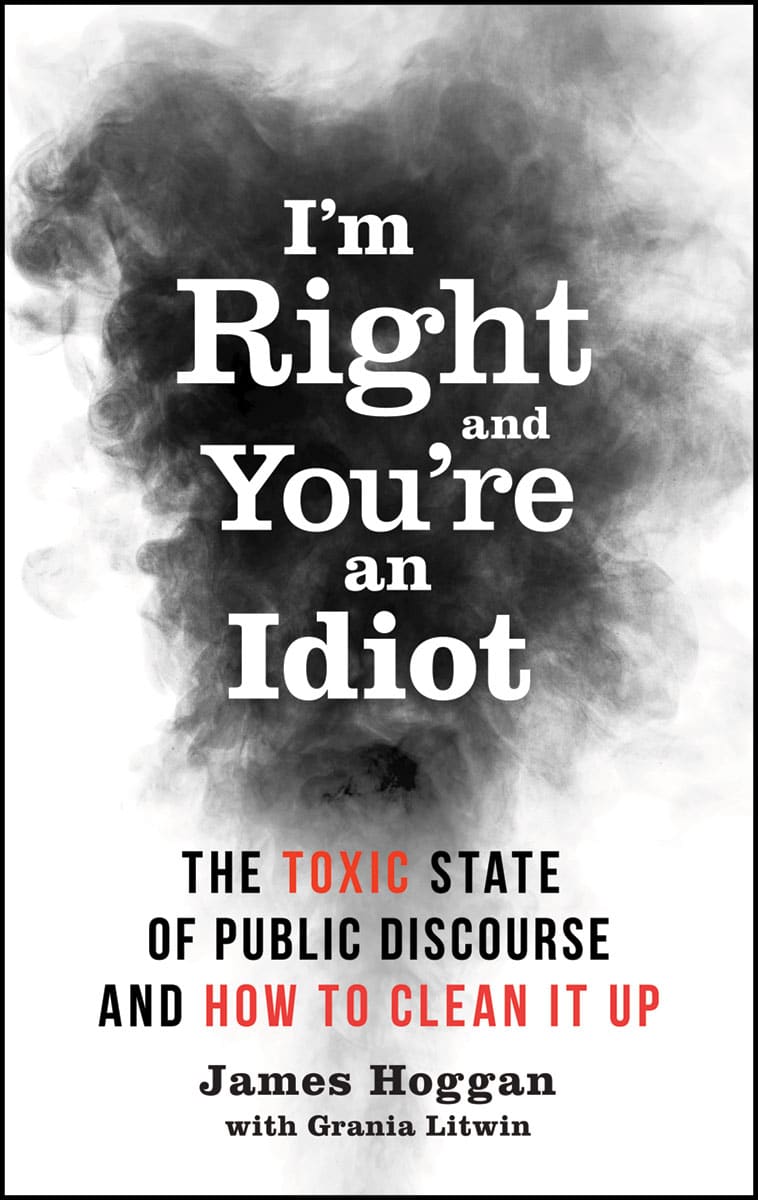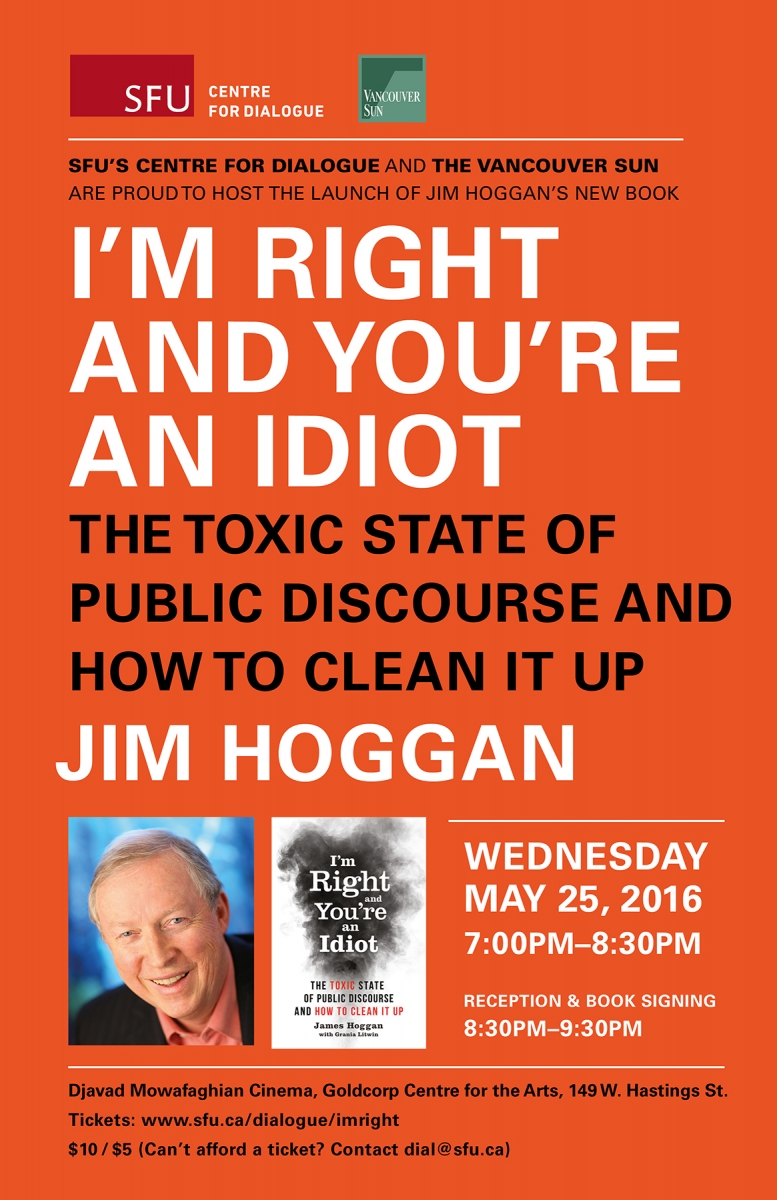I wrote my last book, Climate Cover-Up, because I wanted to take a deeper look at the science propaganda and media echo chambers that muddied the waters around climate change, fuelled denial of facts and stalled action. The book was a Canadian best seller, was reprinted in Spanish and Mandarin and became the basis of many lectures, panel discussions and presentations I have given around the world since it was published in 2009.
I continued to be perplexed and frustrated by the spin doctoring swirling around the global warming issue, making it easy for people to refute the reality of what’s going on and ignore this critical collective problem. But as time went by I became even more concerned and alarmed by the crazy state of debate today in general — the toxic rhetoric that seems to permeate virtually all of the important issues we face, whether it’s a discussion about vaccinations, refugee immigration, gun control or environmental degradation.
I decided to write another book that would take a deep look at our resistance to change, the human relations and ingrained psychology causing it and the gridlock, inaction and despair that result.
My new book, I’m Right and You’re an Idiot, is a provocative examination of this growing trend: the sorry state of pollution, polarization and propaganda in the public square. Sometimes it’s intentional, sometimes it’s inadvertent, but the troublesome fact is this toxic mix is coming from all sides and stifling discussion and critical debate.
I wanted to find out how misinformation campaigns work, how we came to a time when facts don’t matter and how we can start having real public conversations again. So I began to explore how these tendencies arise, what spurs us to become close-minded, aggressively vitriolic and most importantly, what we can do about it. I also began to analyze how we can become highly effective communicators, deflect over-the-top advocacy and make our arguments more convincing.
Writing this book has been a fascinating journey, even though I have years of experience in tough issues and crisis management. What surprised and pleased me was the discovery that the intellectual environment is ripe for this discussion, which enabled me to present the collective wisdom of an outstanding set of thinkers who were all eager to share their knowledge.
I distilled more than 60 interviews conducted with everyone from a NASA scientist to a deep-sea oceanographer, from cognitive researchers to authorities on systems thinking. I sat down with an expert on public trust in the House of Lords lunchroom, spent a week with Zen Buddhist monk Thich Nhat Hanh and travelled to the Himalayas to speak with the Dalai Lama. Insights of political pundits, philosophers, moral psychologists, brain scientists, scholars, media gurus and corporate analysts are all included.
I’m Right and You’re an Idiot explains why facts alone don’t lead people to the right decisions; how language is manipulated; how people’s voices are “stolen” or silenced and what that means for democracy. It explains why modern messaging fails, why we are susceptible to misinformation and how trust networks are destroyed.
And it outlines real solutions, because we need to open up space for healthy conversations again, frame our arguments more convincingly and become better communicators by tapping into deeply held values.
Hear James Hoggan speak about his new book May 25th in Vancouver. Tickets here.
Subscribe to our newsletter
Stay up to date with DeSmog news and alerts







